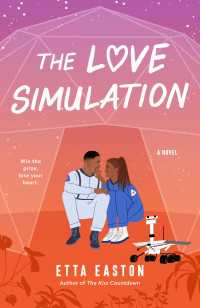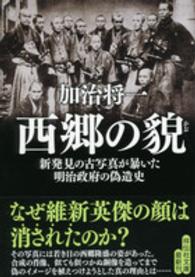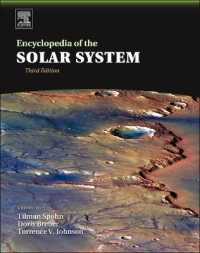- ホーム
- > 洋書
- > 英文書
- > Folklore / Mythology
Full Description
This collection of essays is about theories of myth. The theories come from both the social sciences—psychology, sociology, and anthropology-and the humanities—philosophy, religious studies, and literature. Theories seek to answer three main questions: what is the origin, what is the function, and what is the subject matter of myth?
Chapter one contrasts E. B. Tylor's quintessentially nineteenth-century of myth- that myth serves to explain events in the physical world-to Hans Blumenberg's equally quintessentially twentieth-century one-that myth serves to do anything but explain events in the physical world. Chapter two contrasts F. Max Müller's theory of myth to that of Tylor. Where Tylor sees myth as an aspect of religion, at least of primitive religion, Müller pits myth against religion. Chapter three presents J. G. Frazer's interpretation of Adonis as the god of vegetation or vegetation itself. Chapter four presents Frazer's interpretation of Osiris, one of his other main Mediterranean gods.
Chapter five compares the theories of two of the most popular writers on myth: Frazer and Joseph Campbell. Frazer epitomizes the nineteenth-century view of myth: that myth is merely primitive. Campbell epitomizes the twentieth-century view of myth: that myth is panhuman. Chapter six argues that Campbell, despite the commonly applied characterization, is almost anything but a disciple of C. G. Jung's.
Chapter seven asks whether Mircea Eliade's theory actually allows for modern myths, even in light of his fundamental claim that all humans have and must have myth. Chapter eight considers Eliade on the compatibility of myth with science. Chapter nine sums up the book Twentieth Century Mythologies (2006) by Daniel Dubuisson. He praises Georges Dumézil and Claude Lévi-Strauss as rigorous thinkers and disparages Eliade as a fascist rather than a scholar.
Chapter ten presents the array of views on the relationship between myth and literature. The key theorist of myth here is Frazer. He himself does not apply his theory to literature, but many others do. Chapter eleven compares various theorists on the nature of hell and heaven. Chapter twelve asks whether heroes of myth must be male. For some theorists of myth, the answer is yes. For others, no.
Chapter thirteen considers the concept, developed by Jung and the physicist Wolfgang Pauli, of synchronicity, or a noncausal relationship between humans and the external world. The fourteenth and final chapter offers a virtual summary of the book. It presents the varying positions of theorists on the relationship among four categories: myth, science, religion, and philosophy. Each theory is applied to the myth of Noah (Genesis 6-9).
Contents
Introduction
Ch. 1: Tylor versus Blumenberg
Ch. 2: Max Müller on Religion and Myth
Ch. 3: Frazer on Adonis
Ch. 4: Frazer on Osiris
Ch. 5: Frazer and Campbell on Myth
Ch. 6: Campbell's Non-Jungian Approach to Myth
Ch. 7: Are There Modern Myths for Eliade?
Ch. 8: Eliade on Myth and Science
Ch. 9: Dubuisson's TWENTIETH CENTURY MYTHOLOGIES
Ch. 10: Myth and Literature
Ch. 11: Hell and Paradise for Milton
Ch. 12: Must Mythic Heroes Be Male?
Ch. 13: Does Synchronicity Bring Myth Back to the World?
Ch. 14: The Bible as Myth, Science, Religion, and Philosophy








